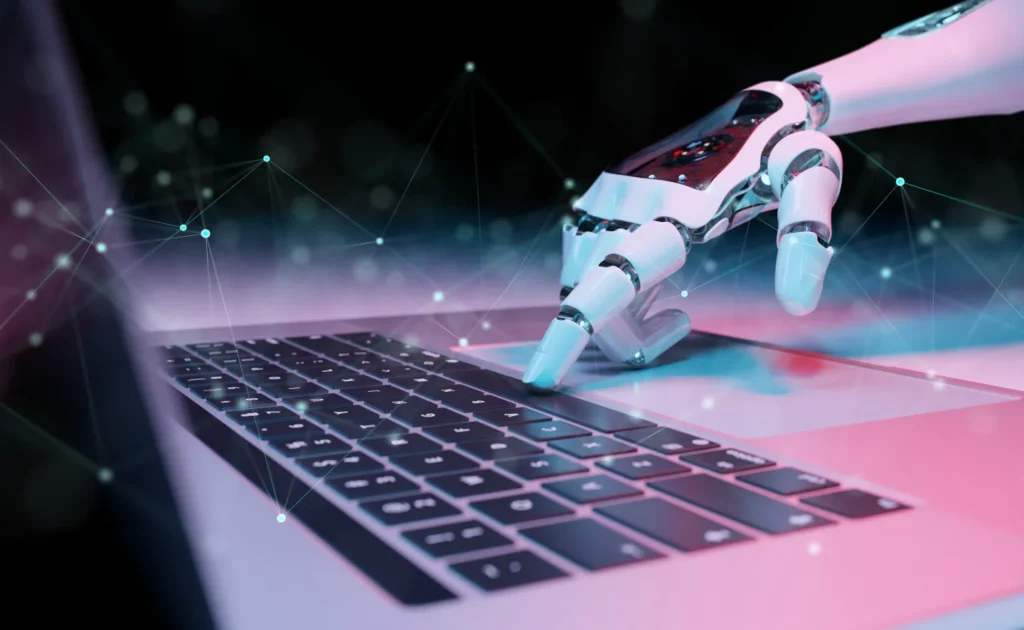Table of Contents
Introduction
The Harvard MBA has long been considered a gold standard in business education. With its rich history, esteemed alumni, and world-renowned faculty, an MBA from Harvard Business School is often seen as a ticket to top-tier business success. But as artificial intelligence continues to evolve, its impact on traditional business education is becoming more profound. Could Artificial Intelligence one day replace the need for an MBA, including one from an elite institution like Harvard? This blog will explore the role AI is playing in reshaping business education, examining whether AI could replace MBA students and, ultimately, the value of programs like the Harvard MBA.

Can AI Replace MBA Students?
1. Decision-Making at Scale
One of the core skills taught in MBA programs is strategic decision-making. Traditionally, MBAs have been valued for their ability to analyze complex business scenarios, synthesize data, and make informed decisions. However, AI’s ability to process vast amounts of data in real-time and generate actionable insights challenges the human advantage. AI tools, such as predictive analytics and machine learning, can now deliver faster and more accurate business solutions than even the most skilled MBA graduate. This raises the question: Will companies favor AI tools over hiring MBA graduates for business strategy roles?
2. Data-Driven Insights and Automation
AI is transforming industries by automating repetitive tasks and delivering data-driven insights that were once the hallmark of MBA-trained professionals. Many of the skills traditionally taught in business schools, such as financial analysis, market research, and even some aspects of leadership, can now be automated through AI. As AI becomes more advanced, companies may no longer need employees to perform these tasks manually, reducing the demand for MBA graduates in certain fields.
3. Cost-Effective Alternatives to an MBA
Obtaining an MBA, particularly from a prestigious institution like Harvard, is expensive. The costs can include tuition, lost income during the program, and the opportunity cost of time spent studying instead of working. On the other hand, AI-driven business education alternatives are emerging, offering a more cost-effective solution. Online AI-powered platforms provide interactive learning experiences, simulations, and case studies at a fraction of the cost. For businesses and individuals, AI-based education solutions may offer a more attractive return on investment than a traditional MBA.
4. AI-Powered Skill Development
A key strength of MBA programs is their focus on developing soft skills, such as leadership, communication, and negotiation. While Artificial Intelligence cannot fully replicate these interpersonal skills, it is increasingly being used to enhance them. AI-driven training programs can provide personalized feedback on leadership styles, simulate negotiation scenarios, and even help improve emotional intelligence through data analytics. With Artificial Intelligence advancing in these areas, it is conceivable that future leaders could acquire many of the skills taught in MBA programs through AI-driven coaching and learning systems.

How Good is a Harvard MBA?
Despite the rapid advancements in artificial intelligence and its potential to disrupt traditional educational models, the Harvard MBA remains one of the most prestigious and sought-after business degrees globally. For over a century, Harvard Business School (HBS) has been synonymous with excellence in business education, producing graduates who go on to become influential leaders, CEOs, entrepreneurs, and policymakers. Its reputation is built on a combination of rigorous academic training, real-world experience, and an unparalleled network of alumni and resources.
Prestige and Global Recognition
The Harvard MBA is a brand in itself. Harvard Business School consistently ranks among the top business schools globally, with its MBA program seen as the epitome of elite business education. A Harvard MBA is often a badge of honor that opens doors to high-level career opportunities, especially in industries like consulting, finance, private equity, and technology. Harvard’s influence extends beyond the U.S., and its graduates are sought after by global organizations, making the degree highly valuable for individuals looking to work in international markets.
Harvard’s rigorous admissions process ensures that only the best candidates make it into the program. The school looks for individuals with strong academic backgrounds, leadership potential, and diverse experiences. Being part of such a select group enhances the value of the degree, as students are constantly challenged and inspired by their peers. The diversity of thought and experiences within the Harvard MBA cohort fosters a rich learning environment, one that is difficult to replicate in AI-driven learning platforms.
The Power of the Harvard MBA Network
One of the most significant advantages of earning an MBA from Harvard is access to its extensive and powerful alumni network. Harvard Business School has produced thousands of graduates who hold influential positions in business, government, and non-profit organizations around the world. The HBS alumni network includes CEOs of Fortune 500 companies, founders of innovative startups, prominent investors, and even world leaders. This network is invaluable for Harvard MBA students and graduates, as it provides connections, mentorship, and career opportunities that are difficult to access elsewhere.
Moreover, Harvard’s alumni are known for their loyalty to the institution and each other. The alumni network is a tight-knit community that facilitates lifelong professional relationships. Whether a graduate is seeking career advice, investment for a new venture, or exploring job opportunities in a new industry or region, the HBS network can be an essential asset. No AI-driven platform can currently replicate the personal connections and social capital that come with being part of such a prestigious network.
Access to World-Class Faculty and Resources
Harvard Business School is home to some of the world’s leading experts in business, economics, and management. The faculty at HBS are not only scholars but also practitioners who have made significant contributions to the industry. Many are advisors to global corporations, governments, and non-profits, bringing real-world insights into the classroom. HBS professors regularly produce cutting-edge research, publish influential books and articles, and contribute to the global business discourse. Students benefit from learning directly from these thought leaders, who challenge them to think critically and innovate.
In addition to its faculty, Harvard provides students with access to a wide array of resources, including case studies, simulations, and real-world projects. The HBS case method is particularly renowned for its effectiveness in teaching strategic thinking and problem-solving. By analyzing complex business problems faced by real companies, students develop the ability to think on their feet and make decisions in uncertain and dynamic environments. These hands-on experiences are difficult to fully replicate through AI-driven education platforms, which may lack the depth and nuance provided by Harvard’s immersive learning environment.

Leadership, Critical Thinking, and Ethical Decision-Making
At the core of the Harvard MBA program is a focus on leadership development. Harvard is known for producing not just business executives but global leaders who are equipped to tackle the complex challenges of today’s world. The program places a strong emphasis on building leadership skills, including communication, teamwork, and emotional intelligence. These are areas where AI, while powerful in its ability to process data and automate tasks, falls short.
Harvard MBA students are trained to think critically, challenge conventional wisdom, and navigate uncertainty—skills that are critical in leadership roles. The program also emphasizes ethical decision-making, encouraging students to consider the broader societal impact of business decisions. As organizations face increasing scrutiny over their environmental, social, and governance (ESG) practices, the ability to lead with integrity and make ethical choices is more important than ever. While AI can assist in analyzing data and optimizing decisions, it cannot replicate the human judgment and moral reasoning that are essential in leadership.
The Adaptability of Harvard MBA
Though AI and other technological advancements are transforming the business landscape, the Harvard MBA remains adaptable. Harvard Business School has always been at the forefront of innovation in education. Over the years, it has evolved its curriculum to reflect the changing needs of the business world, incorporating new technologies, trends, and challenges into its programs. In response to the rise of AI and digital transformation, HBS has introduced courses on data analytics, AI, machine learning, and digital strategy, ensuring that its graduates are well-equipped to navigate the technological disruptions reshaping industries.
Harvard also understands the importance of soft skills in a world increasingly dominated by AI. While AI can assist in decision-making, the human elements of leadership, such as emotional intelligence, creativity, and empathy, are irreplaceable. The Harvard MBA program continues to place a strong emphasis on developing these uniquely human skills, preparing graduates not just to survive but to thrive in an AI-driven business world.
The Challenges Ahead: Competing with AI-Driven Learning Platforms
Despite its enduring value, the Harvard MBA, like all traditional MBA programs, faces competition from AI-driven educational alternatives. AI-powered platforms offer personalized learning experiences, adaptive content, and the ability to process vast amounts of data quickly. These platforms are cheaper, faster, and more accessible than traditional MBA programs, which can cost upwards of $200,000 and take two years to complete.
For some individuals, particularly those looking to gain business knowledge without the time or financial commitment of an MBA, AI-driven platforms may be an attractive alternative. These platforms can provide targeted learning in specific areas, such as data analysis, finance, or marketing, without requiring a full-time commitment. Additionally, companies may start to prioritize AI-powered skill development tools over traditional degrees, especially for roles that require technical expertise or data-driven decision-making.
However, the Harvard MBA offers more than just technical knowledge. It provides a holistic education that blends business acumen with leadership, critical thinking, and ethical decision-making. The interpersonal experiences, mentorship, and global network that come with an MBA at Harvard are assets that AI cannot replicate. Moreover, for individuals aspiring to lead at the highest levels of business or government, the prestige and connections offered by an MBA at Harvard remain unparalleled.
Conclusion
While AI is disrupting traditional business education, including programs like MBA, it is unlikely to fully replace the need for human leadership, creativity, and emotional intelligence—at least for now. The Harvard MBA continues to hold significant value in the business world, but AI’s rise is challenging the status quo. Businesses may increasingly rely on AI for data analysis, decision-making, and skill development, but the leadership and strategic thinking taught at Harvard still offer unique advantages.
As AI continues to advance, future MBA programs may integrate AI-driven tools and technologies to stay relevant. In the long term, the question may not be whether AI will replace MBA students but how MBA programs can evolve to complement and coexist with AI in the business world.